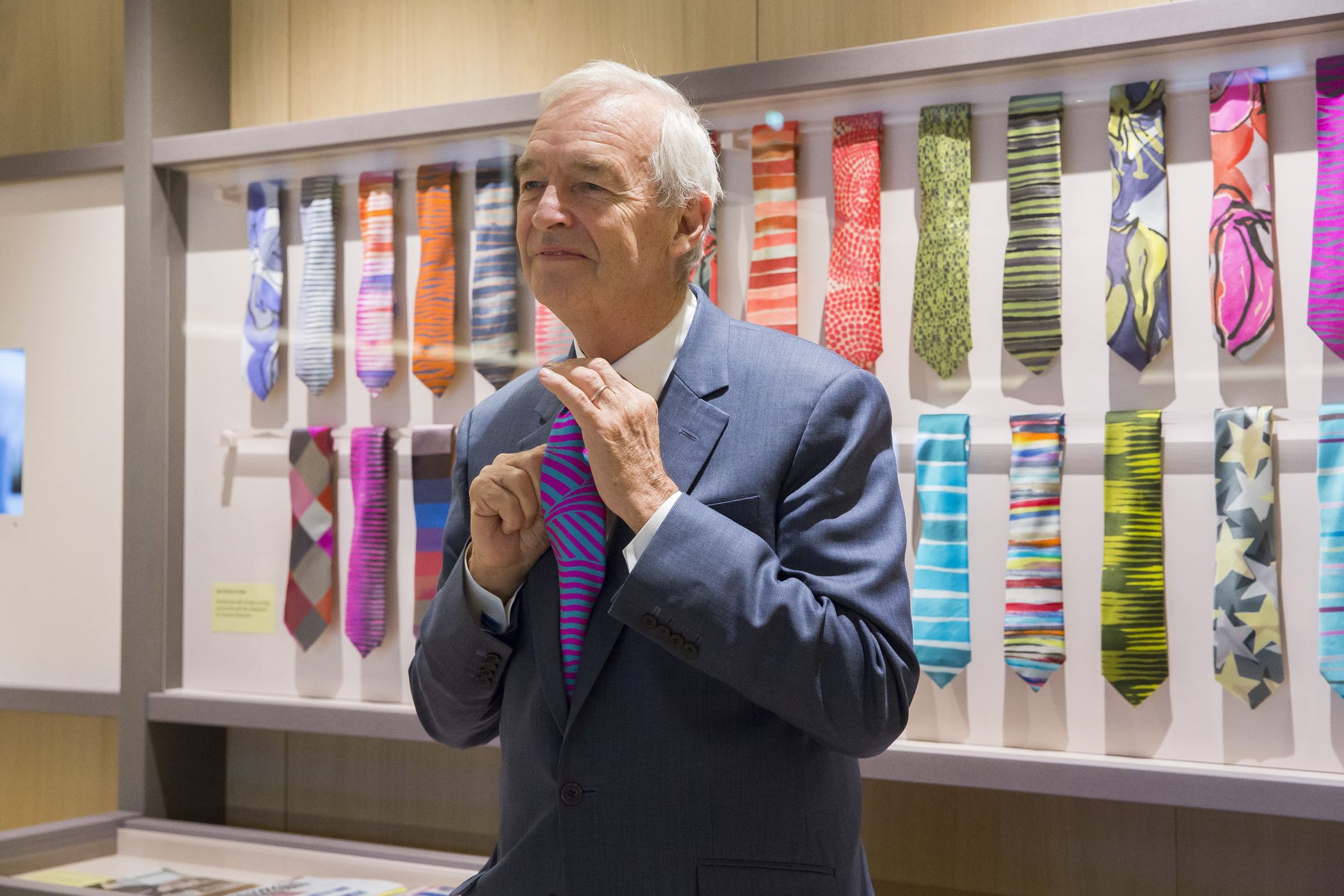The day I wake up to meet Jon Snow, it’s actually snowing, but I’m not quite sure what to do with this information. After all, he is the living legend that is Jon Snow, who has presented the Channel 4 News since 1989, two years before I was even born. Surely he must have heard every snow-related joke before?
Renowned for his brightly coloured socks and ties (there was even a pop-up exhibition in honour of his neckwear earlier this year), Snow has also been a permanent fixture on our TV screens for decades. Aside from presenting the news, he’s also taken powerful ‘skunk’ cannabis live on TV as part of a scientific trial, and is a regular fixture on the Big Fat Quiz of the Year.
Meeting over breakfast at the Channel 4 newsrooms in London, Snow is surprisingly similar to what you see on TV. “People do think I am much smaller than I am,” he muses. “I am shockingly tall at 6″4 and I think they think I’m about 5″8.” But when it comes to his personality, he thinks it’s important to keep it real. “If you’re not you then it would be a great strain to do it every night, four nights a week, and you wouldn’t have any ring of truth about it.” Turns out that he is also okay with bad snow-related jokes. Phew.
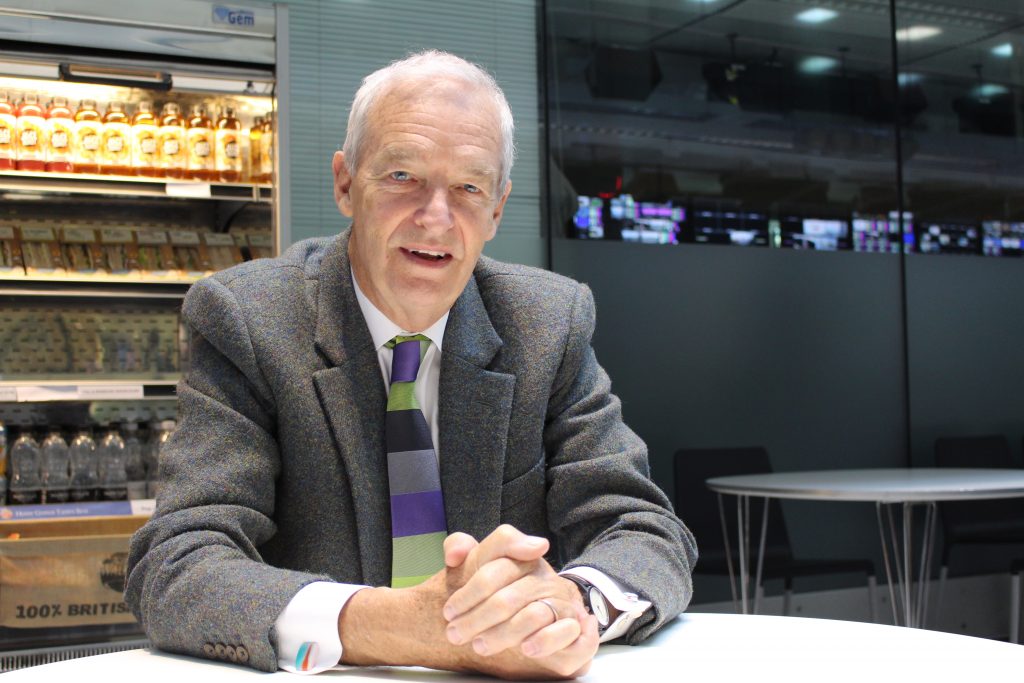
Image Credit: Jem Collins / RightsInfo
What did you want to be when you were a child? Was there a plan to be a journalist?
“No, I didn’t really have a plan. I got thrown out of university for being involved in an anti-apartheid sit-in. I was actually reading law but it was only because I managed to get in on a law course. I wasn’t remotely interested. It was a terrible course anyway. Law is a very, very boring academic subject unless you choose to do jurisprudence.
“[Then] I had to find a job, and somehow I managed to get a job running a day centre in Soho for homeless and vulnerable teenagers. I thought I’d do it for six months, but in fact, the need was so great, it was impossible to escape. I stayed for three years, and then commercial radio started. LBC was the first one, the first news one, and they wanted somebody who had done counselling to deal with the first ever all-night phone lines – they believed there would be some people they couldn’t put on air and would need counselling. But, I mean, who calls a radio station at 2’o clock in the morning? There was nothing for me to do and they said, ‘would you like to read the news?’ and I said yes. As soon as I started I realised it was exactly what I wanted to do.”
How did your formal education shape you, if at all?
“Well, I was a chorister at Winchester Cathedral, that shaped a love of music… but you can’t get a job with a love of music really, unless you’re exceptionally good. I went to a tech, Scarborough Technical College and there, of course, I met women for the first time and became quite political.
“I invented a RAG week, we had lots of demos around the town and we raised a lot of money. Then, the biggest thing I did was to go on a volunteering service overseas. Never having been out of Europe, and never having been on a plane, I taught in a school by the Nile and that shaped me, for sure. That has informed my journalism ever since – not that I knew then it was going to inform my journalism. I went to Liverpool University and that shaped me, but it was more a political and social education than an academic one. I would say I’m not academic.”
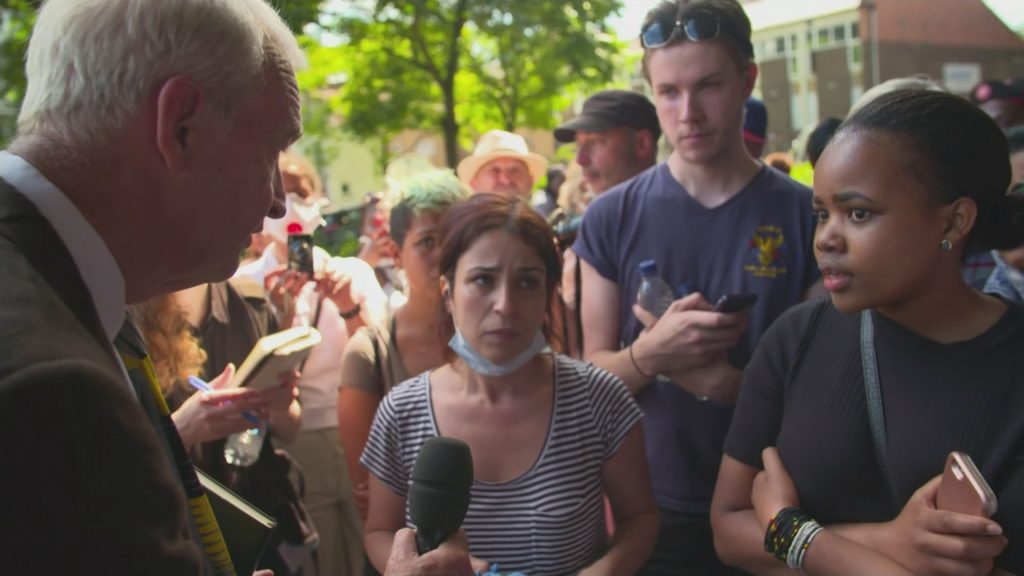 Jon Snow says the anger felt ‘papable’ after Grenfell, from local people. Image Credit: Channel 4 Press
Jon Snow says the anger felt ‘papable’ after Grenfell, from local people. Image Credit: Channel 4 Press
How important is it that journalism actually reflects real people? And how do we fix it if it doesn’t?
“We have moved into the elite. I delivered that lecture about Grenfell [The MacTaggart Lecture, about journalism being too far removed from ordinary people] and it was very clear that nobody anywhere near the place knew anything about it, and nobody working on it, as a journalist, has ever lived in or even been up a local authority tower. It’s about inequality. You’d have to sort the tax system and generate more cash for better education… You know, it’s all obvious.
“On Friday I went to a school in the poorest part of Leicester. I was very conscious that I have been to lots of schools but most of them are in the London area, so I thought ‘I’ll go’. I did no research on the school at all but it turned out to be in the poorest district of Leicester. It was incredibly diverse and it was a very, very, uplifting and fantastic experience… I gave a talk to the staff first and you could just see, looking at them in this lecture theatre banked up that they were just full of commitment and enthusiasm, and I was very relieved I’d been. They were ‘real people’.”
What does freedom mean to you?
“Gosh. I mean, freedom is a big concept, isn’t it? Again, freedom is often dictated by wealth. Freedom to do all the things you want to do, freedom to go to all the places you want to go, freedom to be who you are. Freedom to live decently. Freedom is an unencumbered, fulfilling life.”
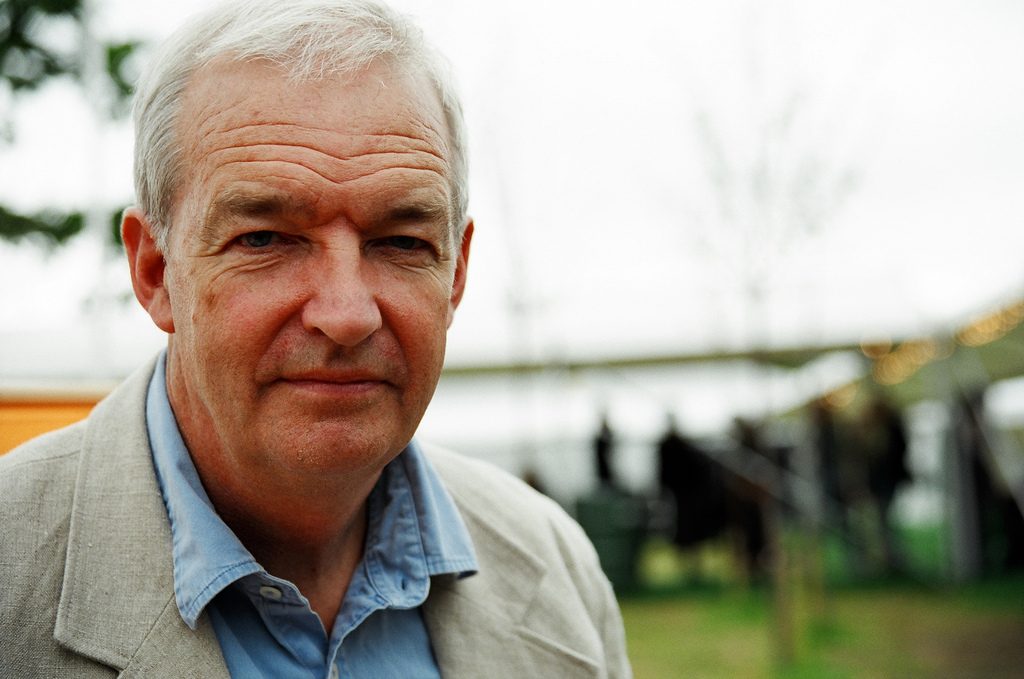
Image Credit: Karen and Richard Edkins / Flickr
What makes you feel frustrated?
“Well, I mean, I think inequality is the threat to our national well-being. We’re not really threatened by the Russians or by you know… any earthly power, but by not being able to sort a society in which everybody has the same chance. It is glaringly obvious that if people have got so much money they can buy a home they’re never going to live in, and don’t even mind whether they rent it, just because they want the value of the house to go up, [there’s going to be] a huge cohort of people who… I mean, we have no idea but if we think we need 1,000,000 homes built in this country, then there’s something wrong.”
I think inequality is the threat to our national well-being. We’re not really threatened by the Russians or by you know… any earthly power, but by not being able to sort a society in which everybody has the same chance.
Jon Snow, Channel 4 News Presenter
Do you ever stop and check your privilege?
“I am privileged, yes. I’m very lucky particularly because of my apparent misbehaviour as a youth.”
What’s your best ever memory?
“That’s a massive question. Well, I would say one of my best memories is living on the banks of the Nile in a community in which nobody had very much at all. But all the people, the kids in the school, were as bright as any I’d ever met.”
Do you think ambition is important?
“I think ambition is a very healthy thing to have. I think it’s a sad commentary if people are devoid of ambition, or so ground-down that they have lost ambition. I think ambition is a very important element of life and it’s good to have ambition.
“And, I think, actually, despite all the inequality, it is possible (possible, I don’t say probable) that anyone with a specific ambition can fulfil it. I mean there may be a lot of things wrong with us but I think it is still possible for somebody born on the impoverished side of the railway tracks (note I have not said the wrong side of the railway tracks, but the impoverished side) to achieve more or less anything in our society.”
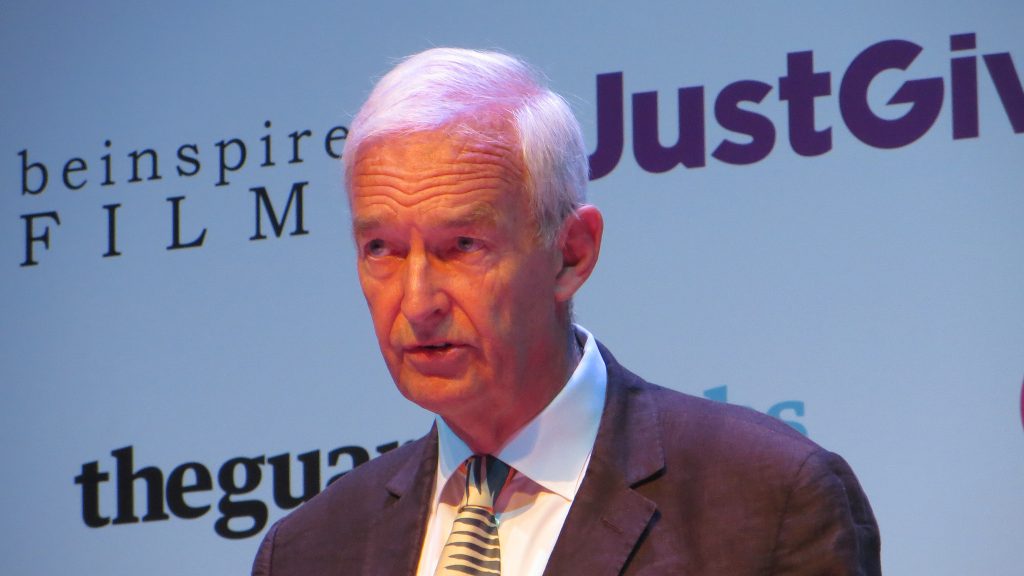
Image Credit: Howard Lake / Flickr
Have you ever learnt a lesson about human rights in a hard way?
“A hard way would have been being expelled from Liverpool University, but it turned out to be the best thing that ever happened to me, so I can hardly dwell on it. But I certainly did have a very harsh wake-up – I never thought a liberal institution would respond the way they did. In fact, I’m not sure that they were very pleased about it either, because a couple of years ago they called me up and said ‘we want to give you an honorary doctorate and we will apologise’. It seemed to be to bury the hatchet.”
Is there anything you worry about in terms of human rights for the next generation?
“I am worried… You know I think one of the most attractive aspects of human rights is that they are universal, and I don’t like the idea of anything that is going to get in the way of that universality. So if we left the United Nations, or indeed, I think there are implications from leaving Europe.
I think one of the most attractive aspects of human rights is that they are universal.
Jon Snow, Channel 4 News Presenter
“I believe the best route is to global human rights… There’s not much point having puddles of human rights. We need to connect them, and there needs to be oceans of human rights. Therefore, I think the more global the concept of human rights and the enforcement of human rights, the better.”
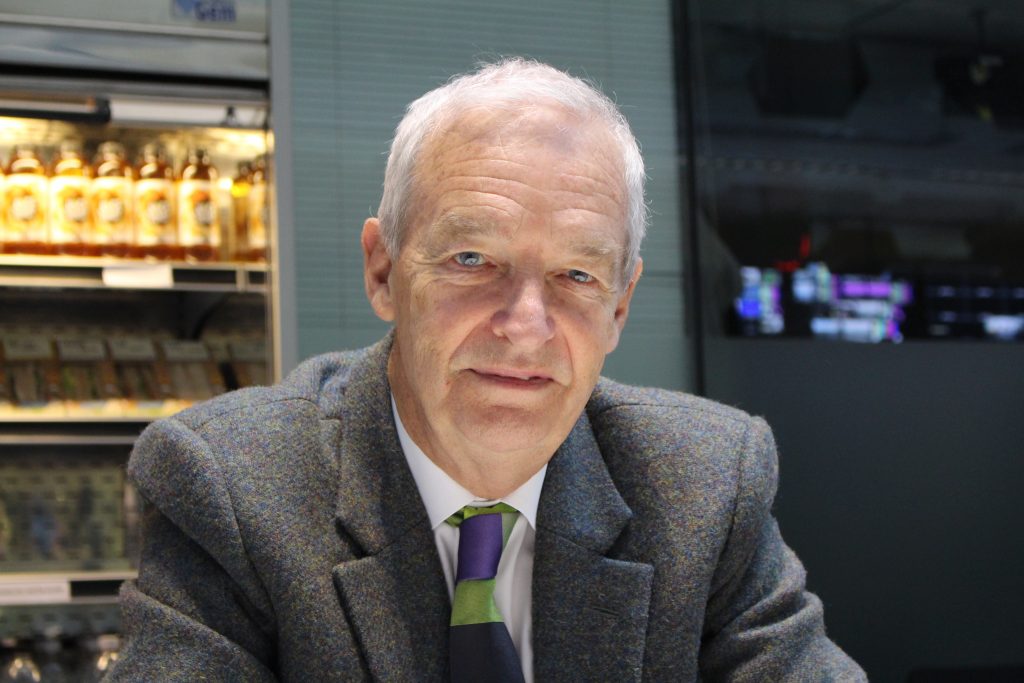
Image Credit: Jem Collins / RightsInfo
Do you feel like you’re trying to change the world in any way?
“No, I’m trying to report the world as it really is. I am trying to report on the people who are changing the world though.”
What is the most important thing you’ve learnt either from your parents or someone else close to you?
“That’s a huge question. I think, you know, when you think about rights, without attaching a human to them, one person’s concept of their rights may well be a violation of another and I think the individual has an obligation, to the society in which he or she lives, to ensure that their own concept of rights does not violate the rights of someone else; so I believe in community.”
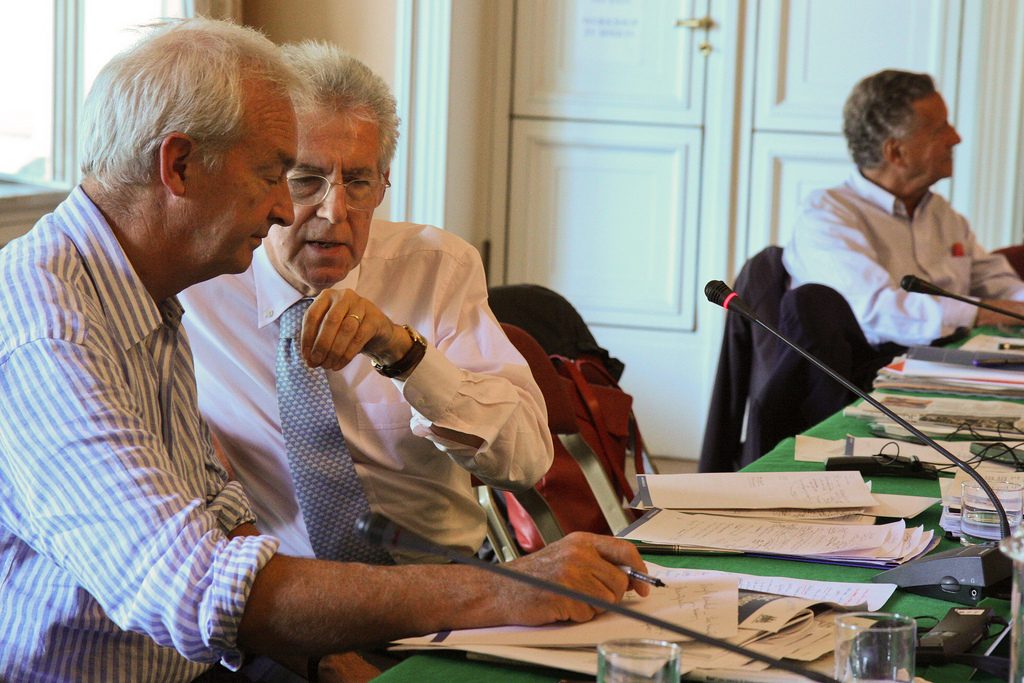
Image Credit: UK in Italy / Flickr
How do you try to be impartial in your reporting?
Nobody is balanced but you can just do your best. I know… I pretty well do know what I should be attempting to aspire to, but I often fail.
What would you say, for you, is the meaning of life?
Well, I think the meaning of life is centred on love. Loving your fellow human beings, loving the other occupants of the planet; be they plants, fish, animals, erm but loving thy neighbour. I’m not particularly religious but I think the assorted religious codes are usually fairly near the button. But yeah, I think love is the centrepiece and I think the important thing about love is loving people who are hard to love.
Featured Image: The Design Museum / Press Release

